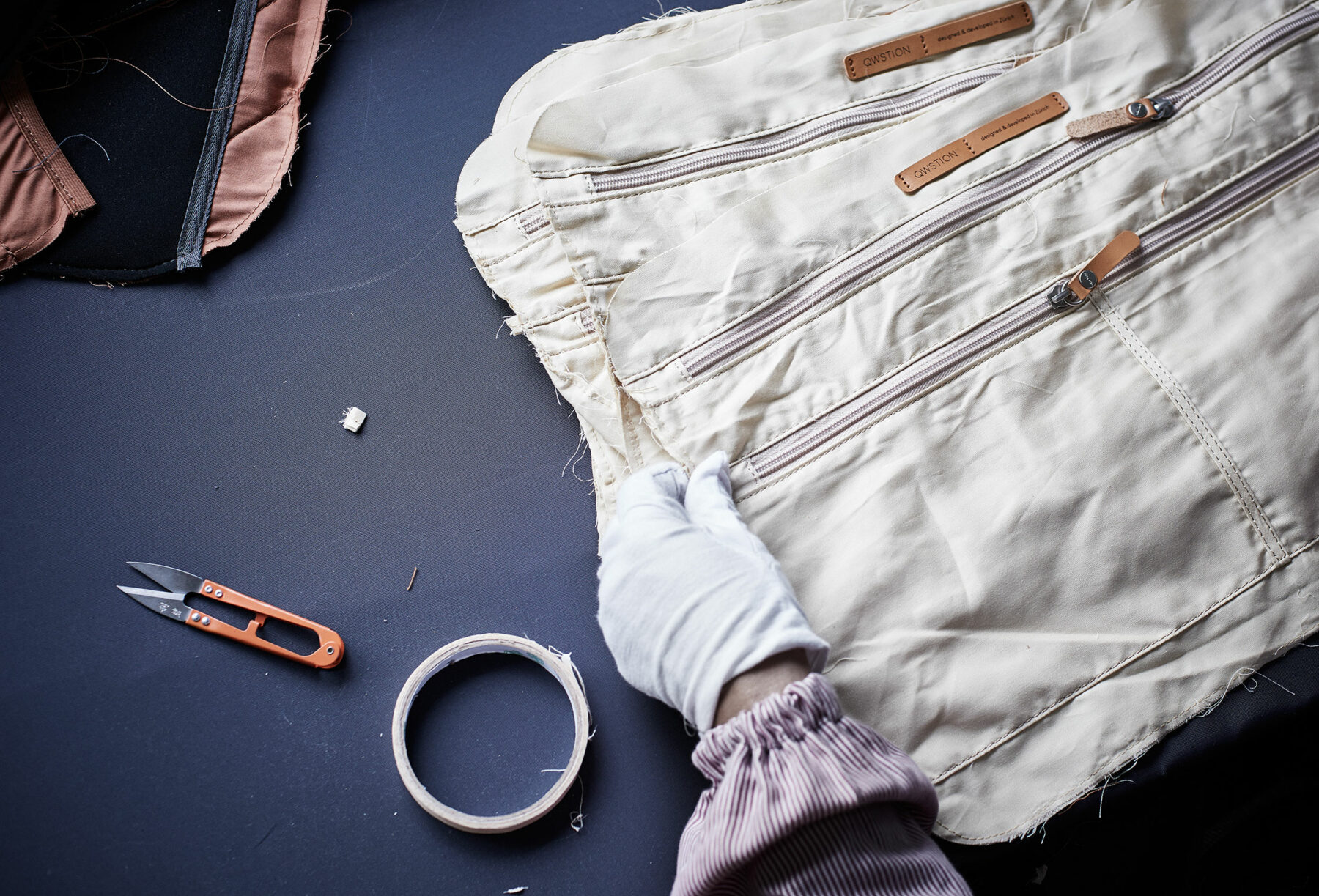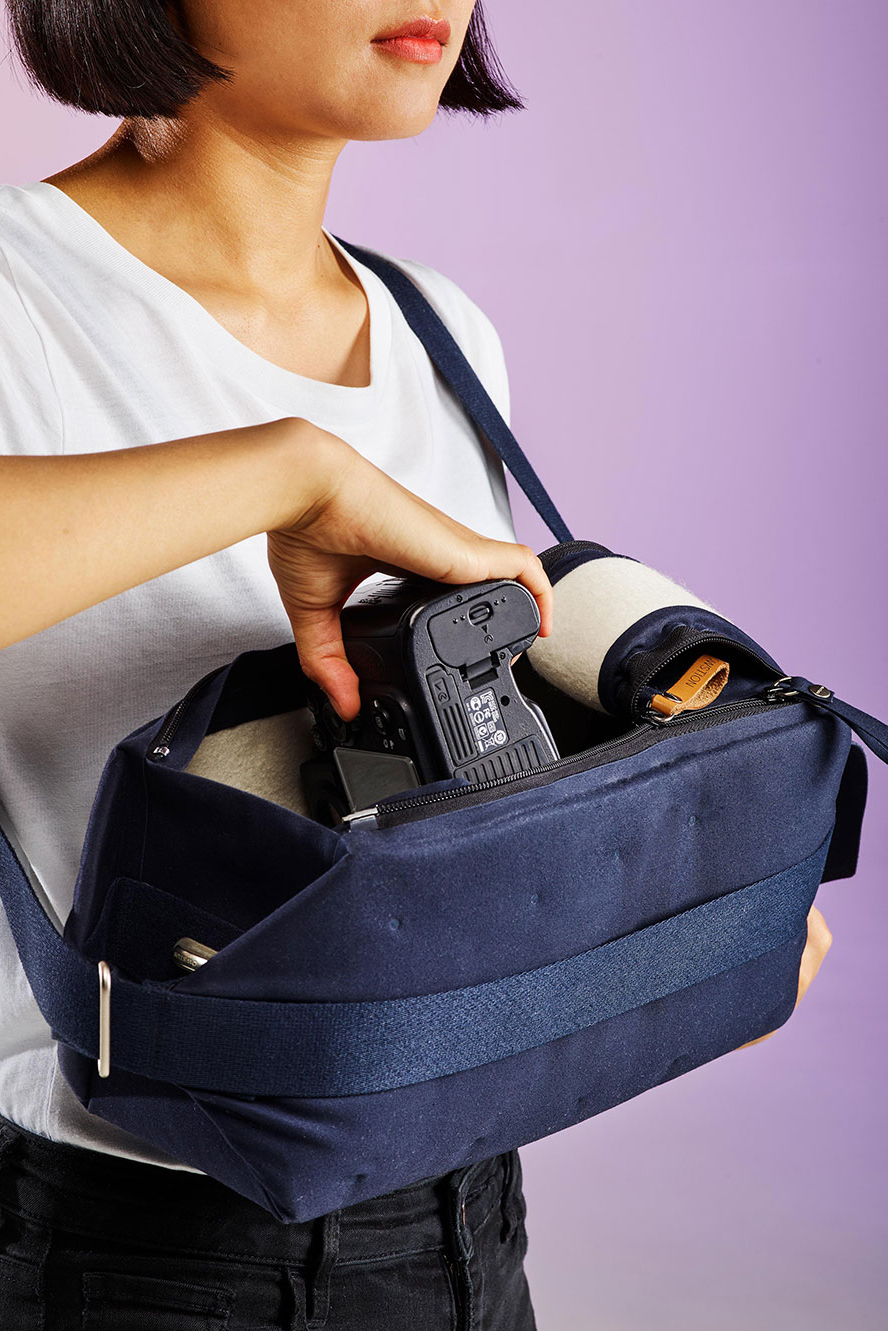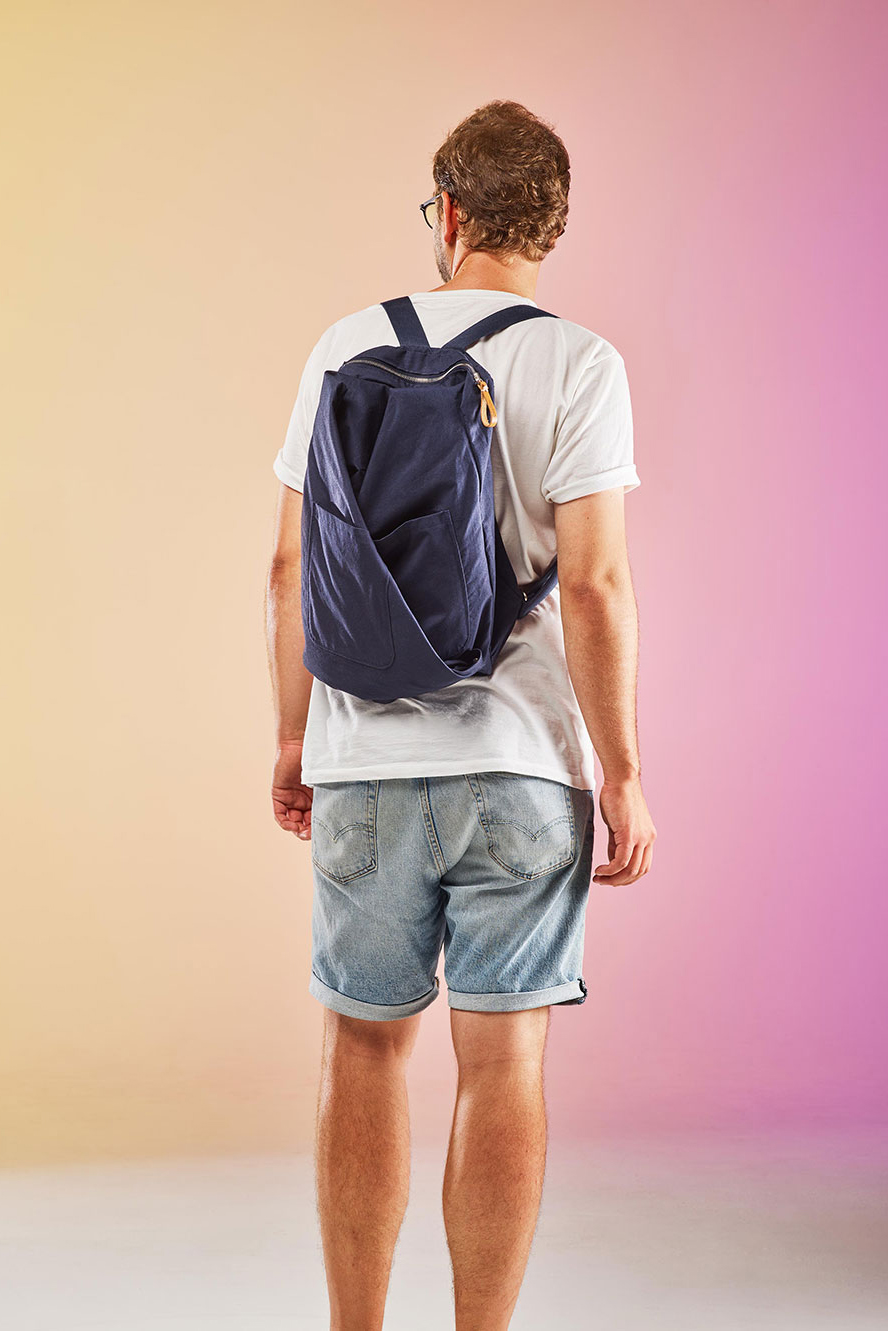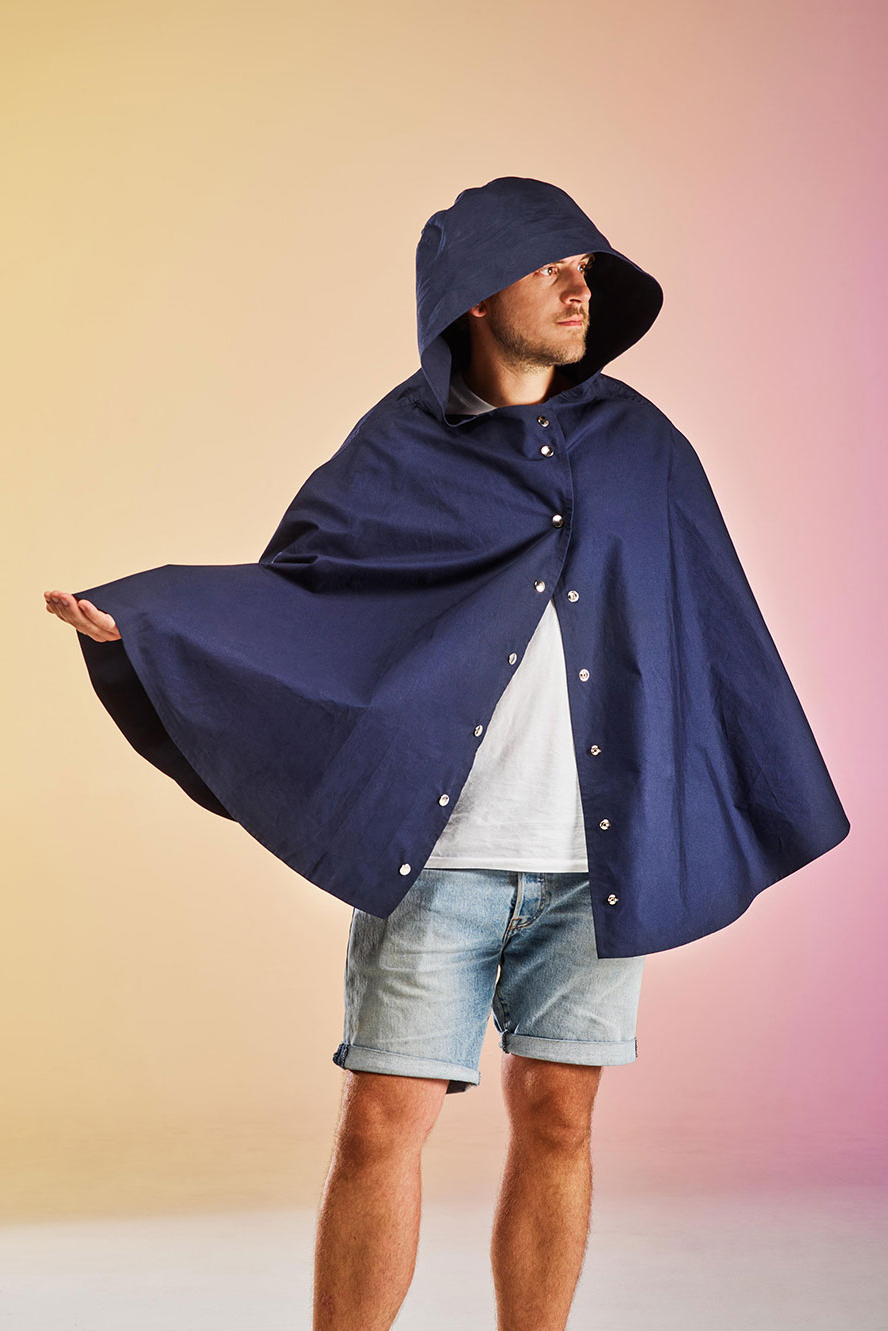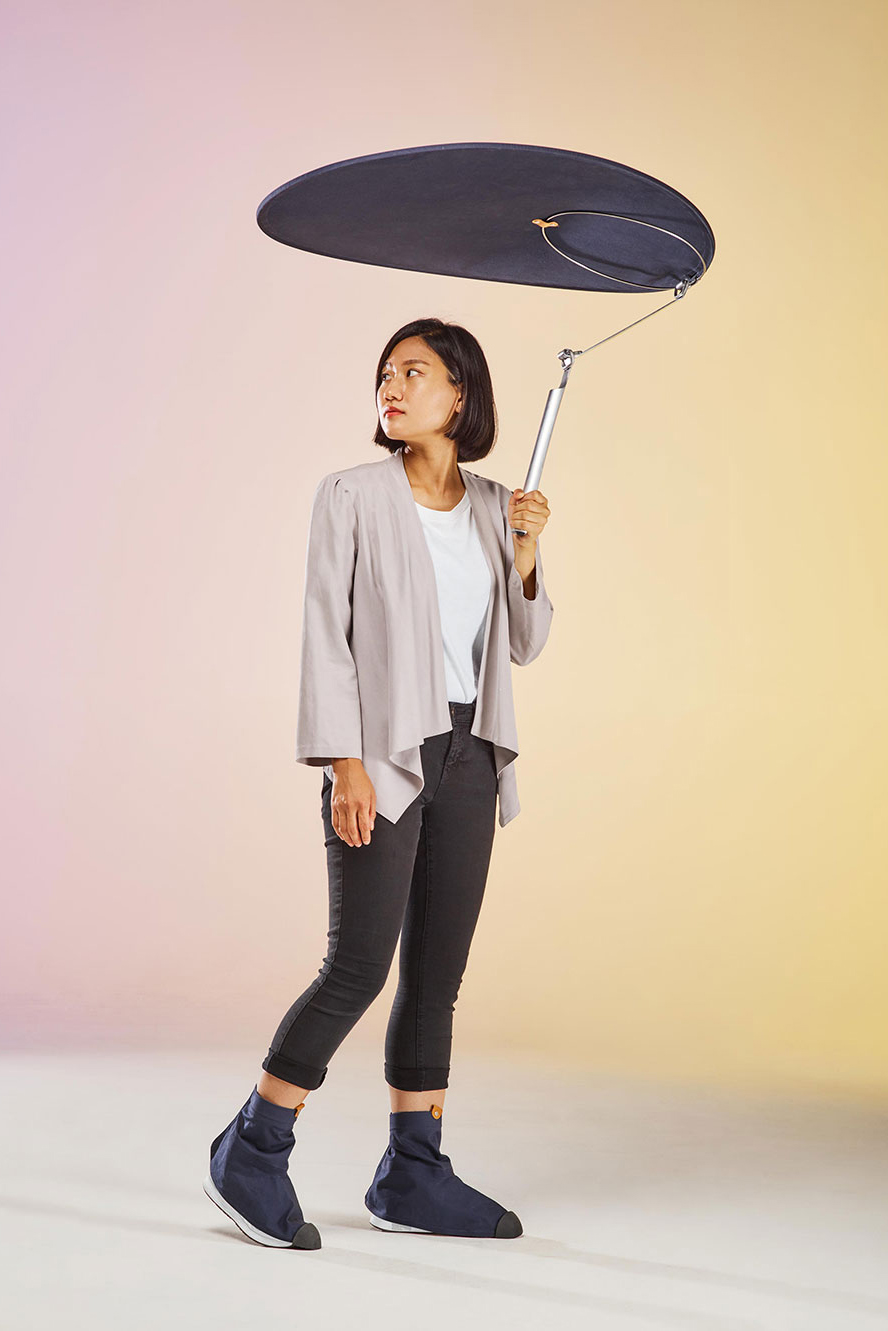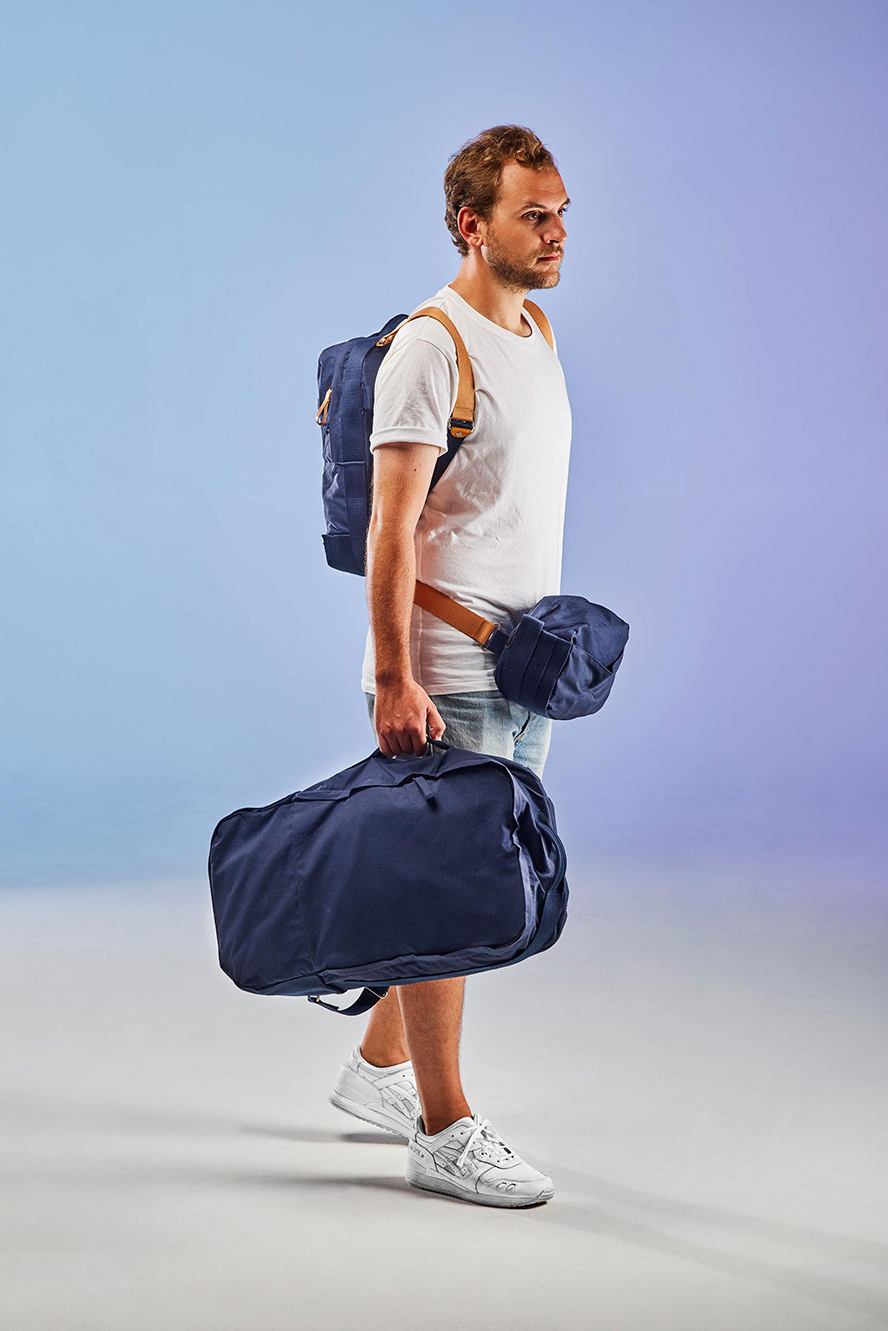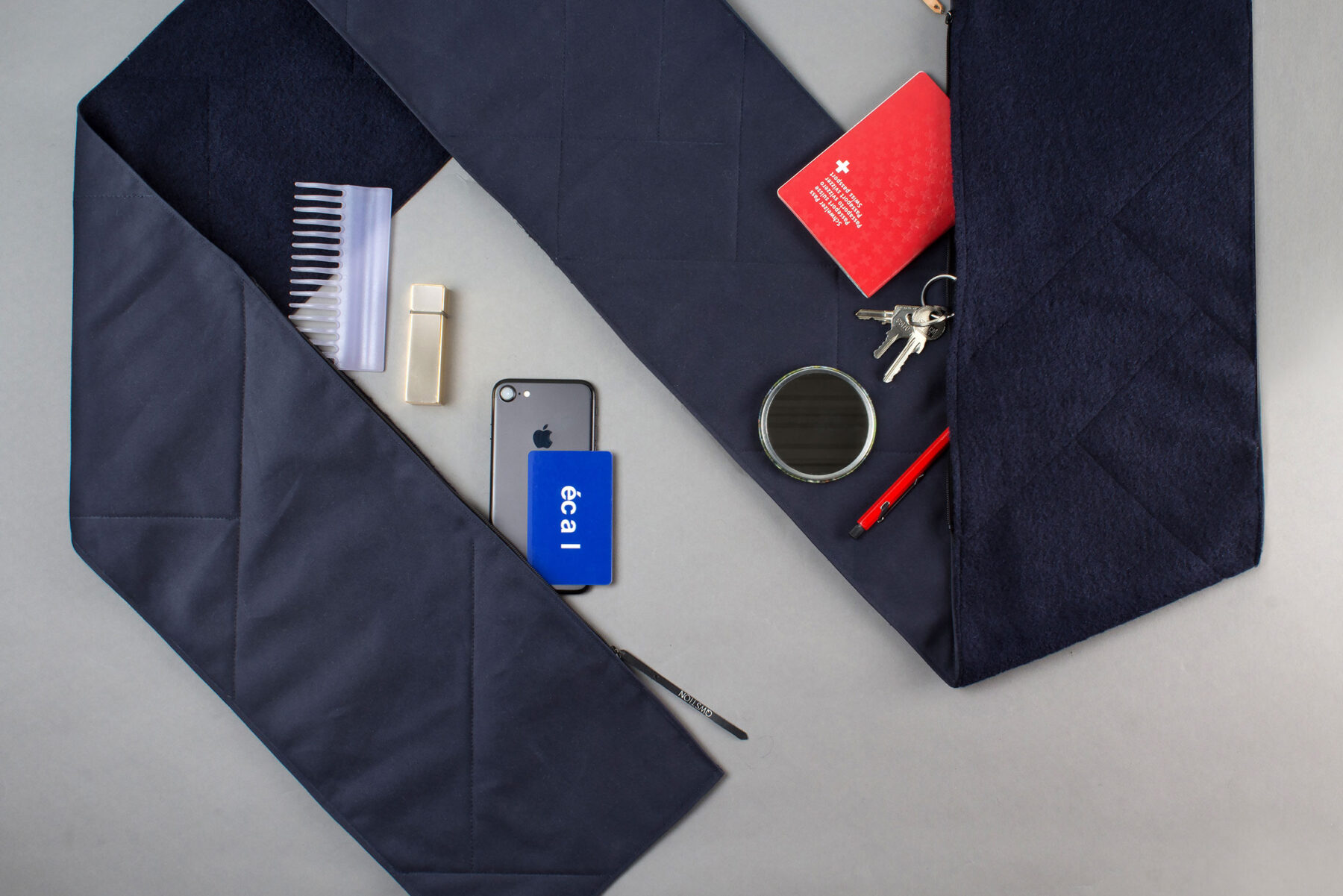Eager to meet current demands and broaden customers’ understanding of natural and renewable materials, QWSTION use their desire to answer questions of sustainability and functionality as a guideline that nurtures a breeding ground for creativity
QWSTION encourages a discerning and curious clientele to query the true quality of products and their own behavior as consumers. At the same time, the team working alongside founders Sebastian Kruit, Fabrice Aeberhard, Matthias Graf, Hannes Schoenegger and Christian Kaegi are driven to continuously analyze, reconsider and optimize existing approaches to design, function, materials and the corresponding processes. Until virtually no questions remain.
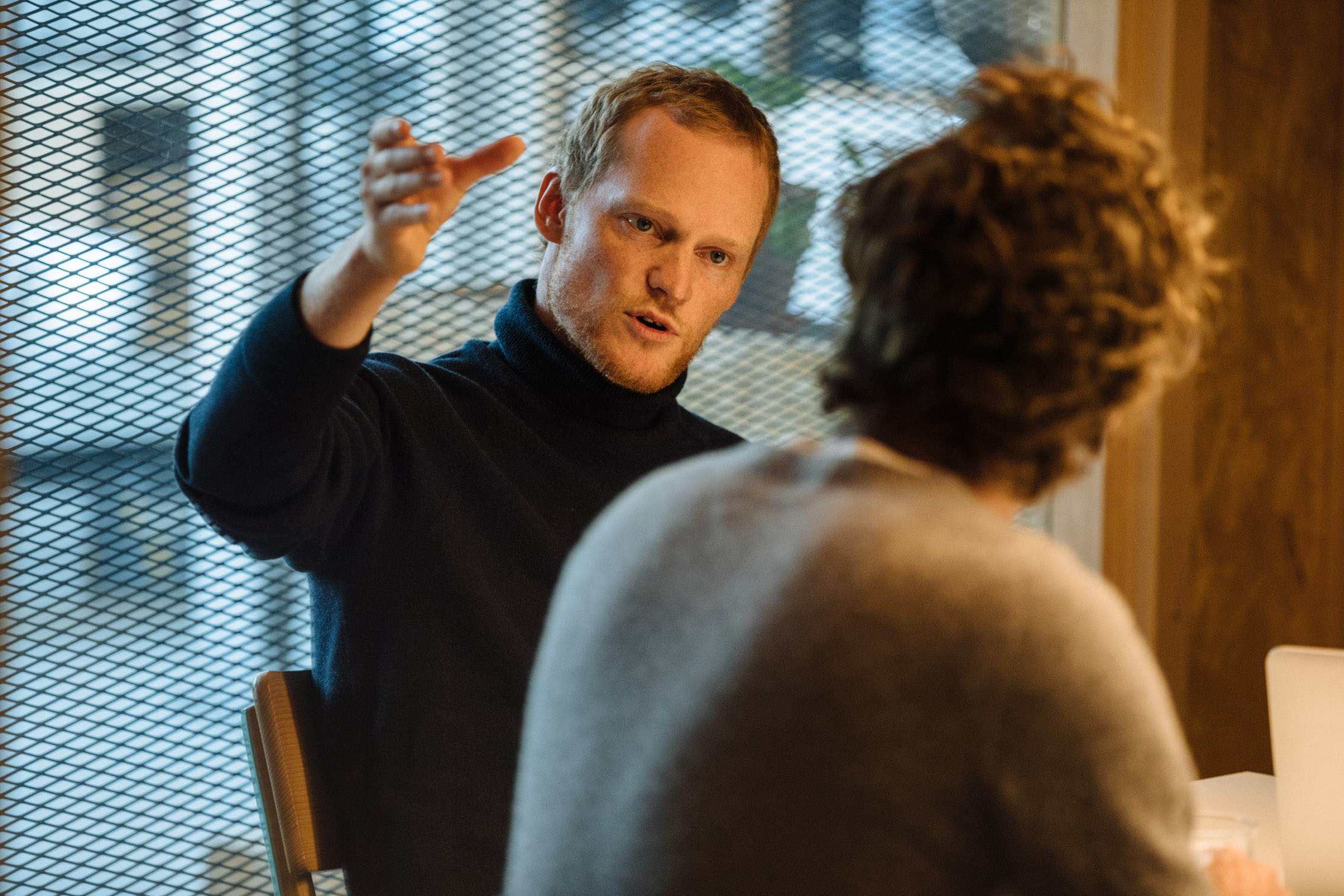
“We will probably never reach that point,” says designer Christian Kaegi, adding: “We see our work as an ever-expanding learning process that constantly drives us forward.” Since its foundation in Zurich in 2008, the company has progressed, particularly with their internal development of suitable materials, which often gives rise to new questions worth investigating. “In the field of product design, we see ourselves as a brand with a serious responsibility. We certainly want to create appealing and accessible products, but with the constant objective of using nature as gently as possible.” This, according to the founders, has yet to become the norm in their business. In contrast to some other brands, QWSTION does not design new seasonal collections each year. While new models are added to the range every now and then, it’s more important that existing ones are revised and improved upon.
“We see our work as an ever-expanding learning process.”
Christian Kaegi
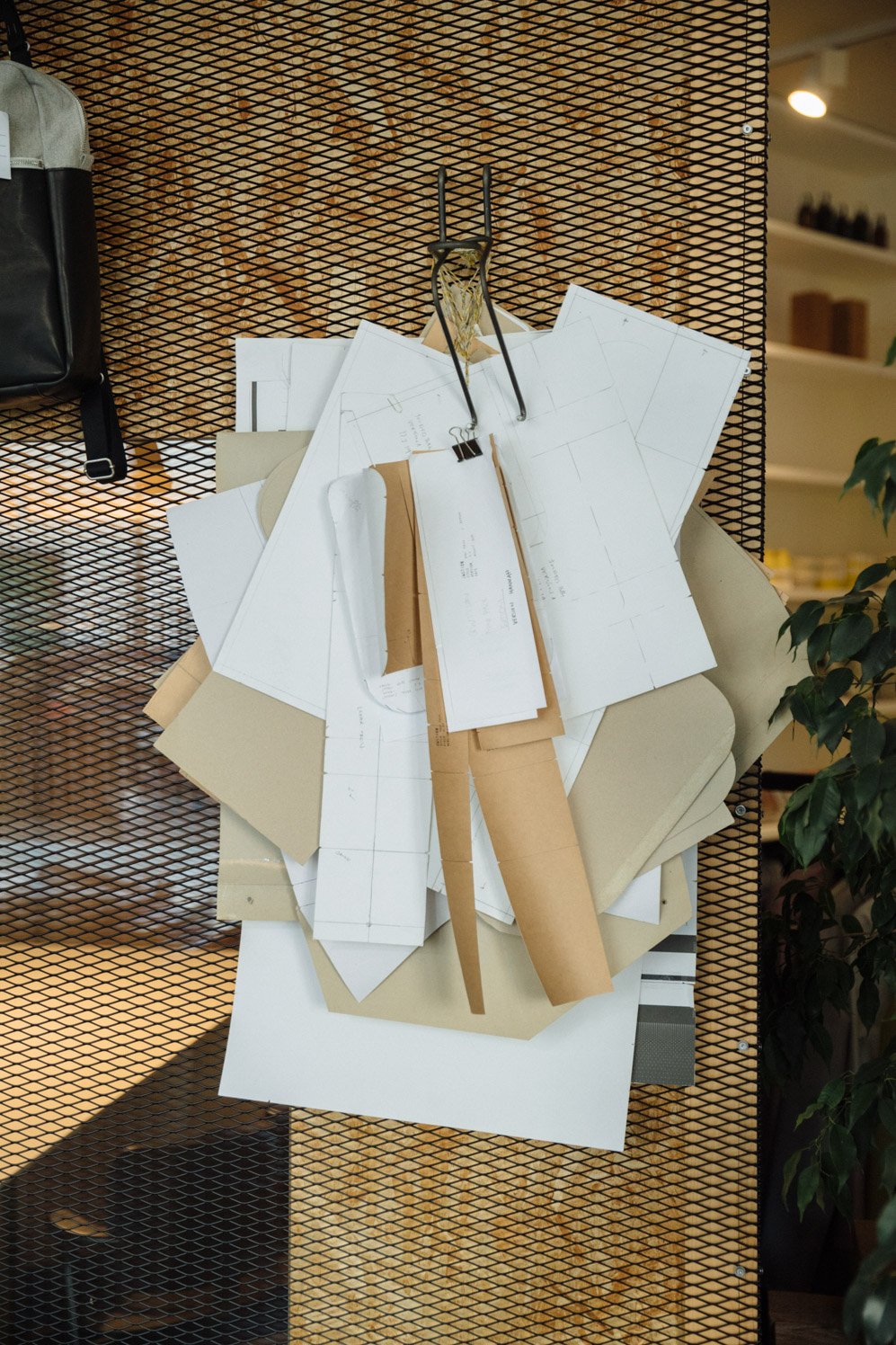
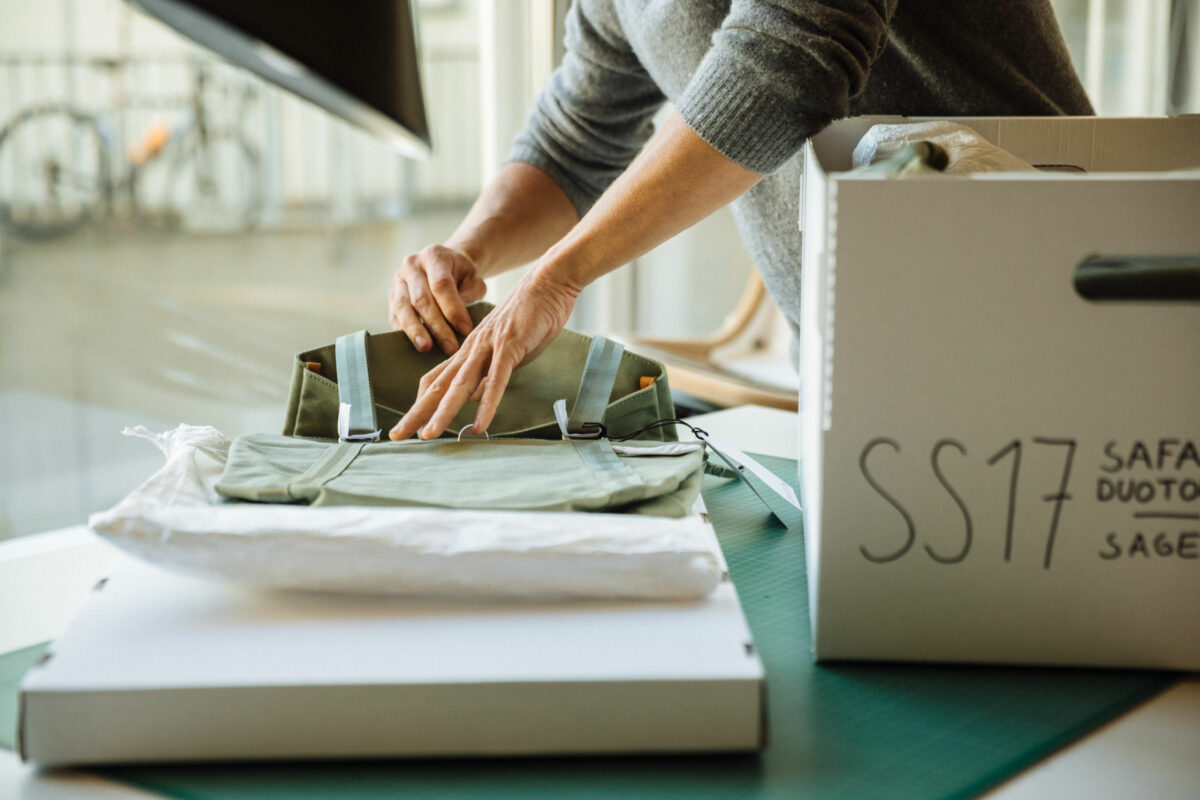
The latter, in particular, means that the team bring their influence to bear even when the raw material for yarn is first procured. “Material development has not always been an integral part of our process,” says Christian Kaegi. “For our very first collection, we sought out a fabric manufacturer who was able to supply us with existing material. We simply wanted to implement it for our designs.” However, the founders agreed that it should be as natural as possible from the very beginning. “Even during our design studies, the sustainable use of resources was an ongoing topic.” This meant that they did not want to use nylon with a PVC coating for their own bags, but rather a natural fiber such as waxed cotton. “That was our principle idea very early on”, says Christian Kaegi. The plan to manufacture in China was also quickly discussed because ten years ago there was already a lot of know-how and the corresponding infrastructure on relatively clear terms. It goes without saying that production in China should be done under transparent, ecologically and ethically acceptable conditions.
“At the beginning we had some negative experiences with the obtaining materials and didn’t receive what we had ordered. So it soon became clear to us that we wanted to find producers with whom we could collaborate early on in the manufacturing process.” That means at the procurement stage for the fiber; we wouldn’t wait until the production of the woven fabric. QWSTION found what it was looking for in the Chinese city of Huizhou, located just outside Hong Kong. In close collaboration with a tannery and other production facilities in the region, they’ve been working on the production of natural and innovative fabrics since 2009. This cooperation has always been monitored with quarterly visits by Christian Kaegi in order to verify the quality standards. Consequently, QWSTION’s main collaborators are BSCI-certified, meaning they carry the seal of approval set out by an EU initiative that regulates a code of conduct with ecological guidelines and fair standards for employees. Whether BSCI-certified or not, QWSTION visit all of their collaborators regularly to check the quality of the production on site.
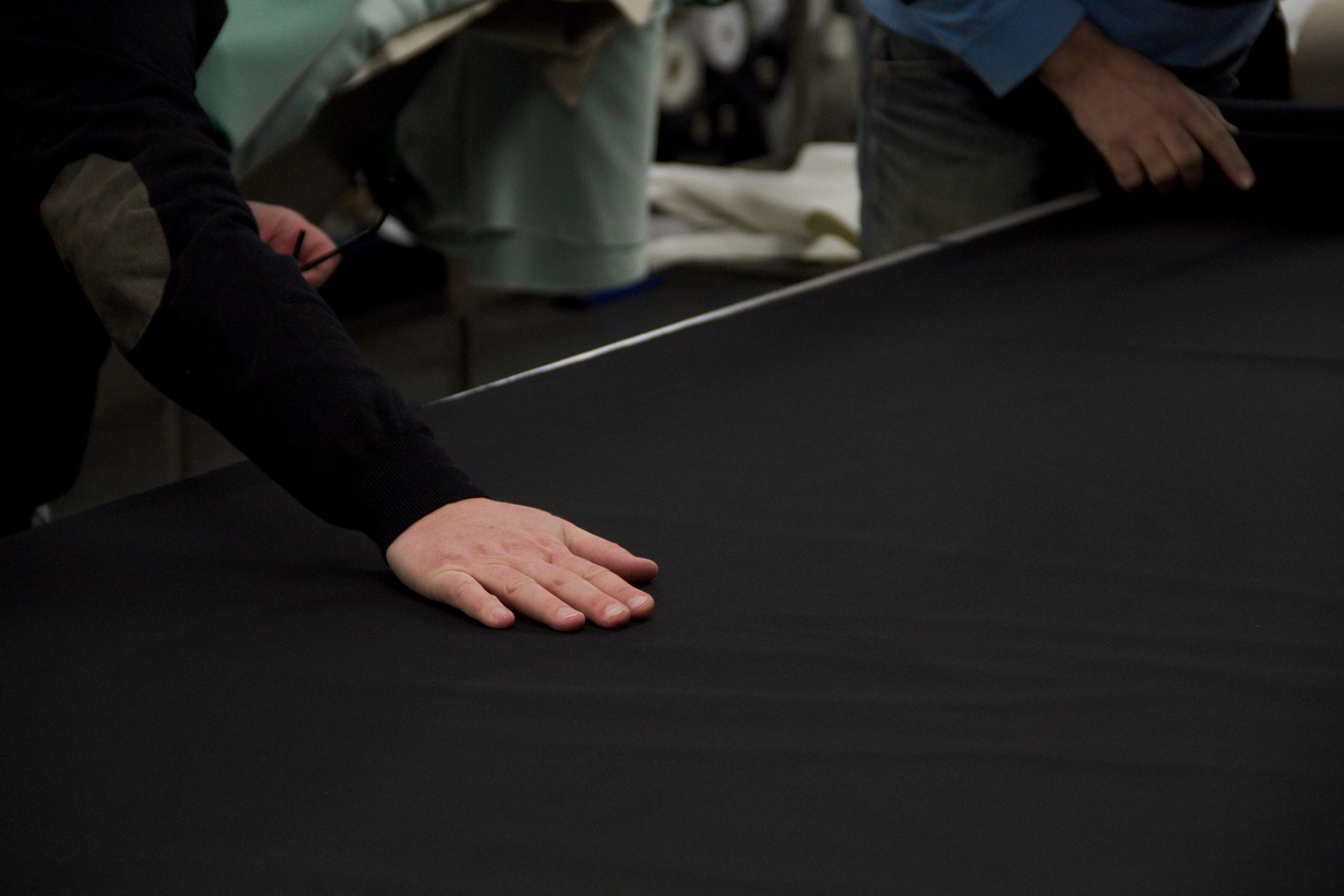
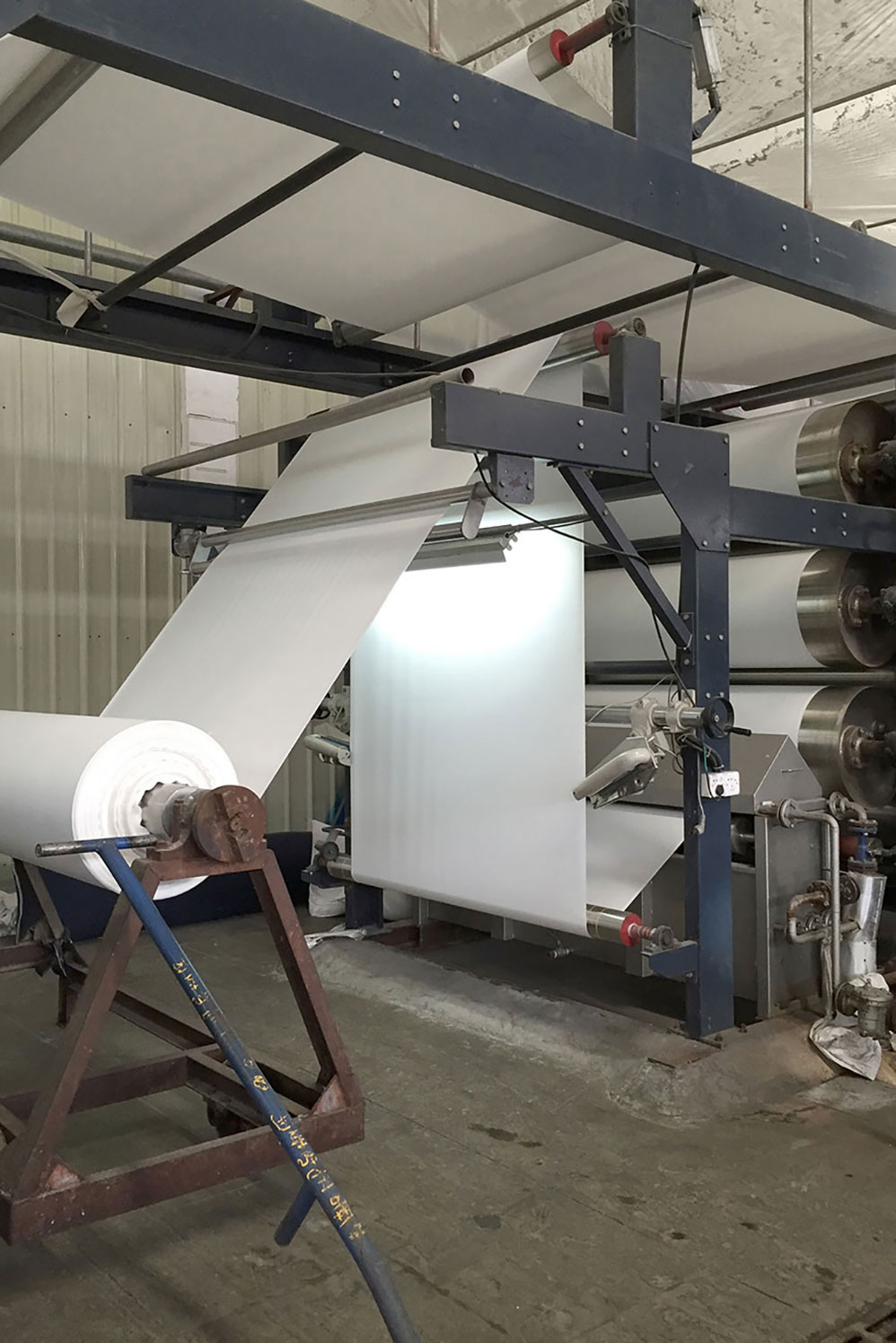
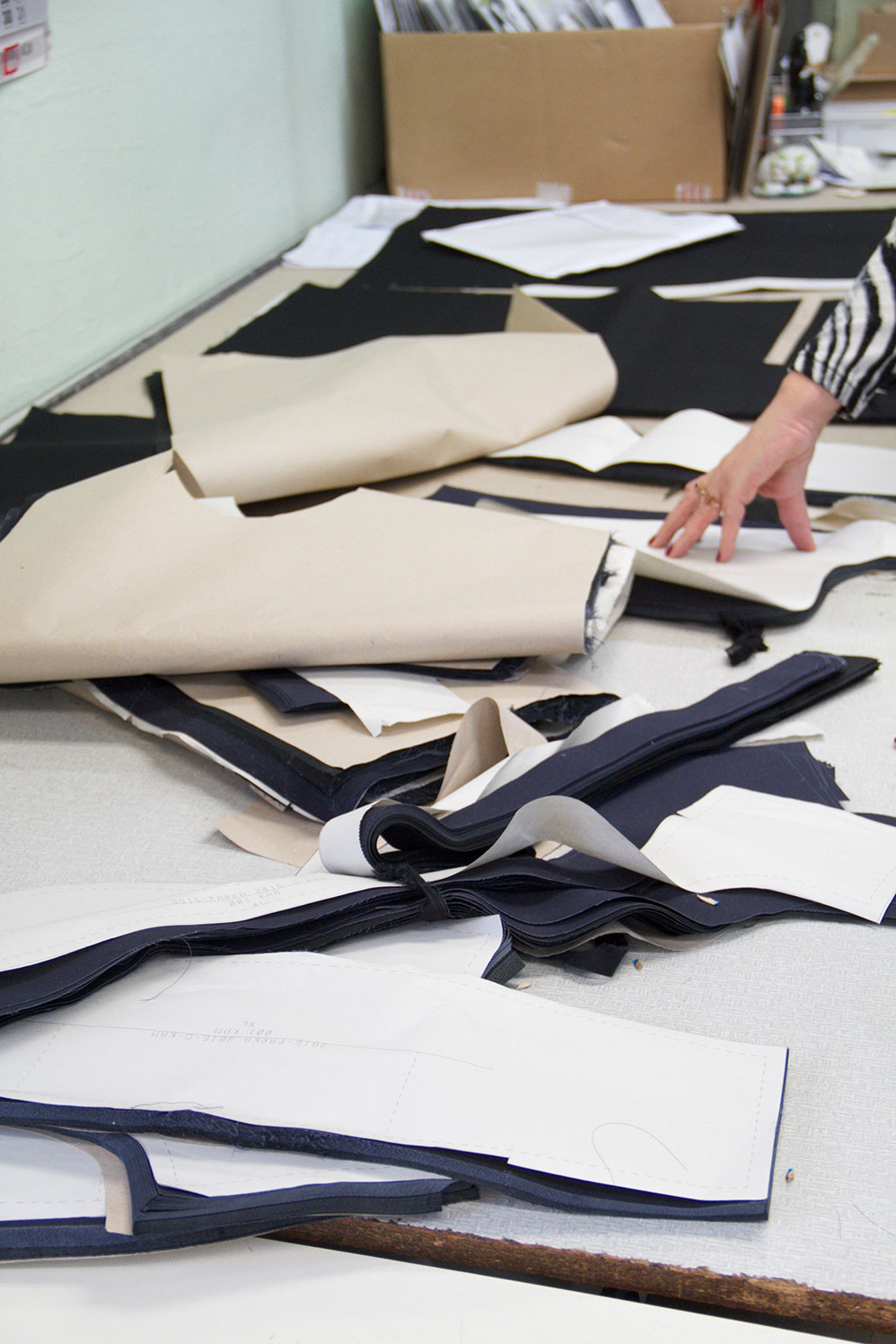
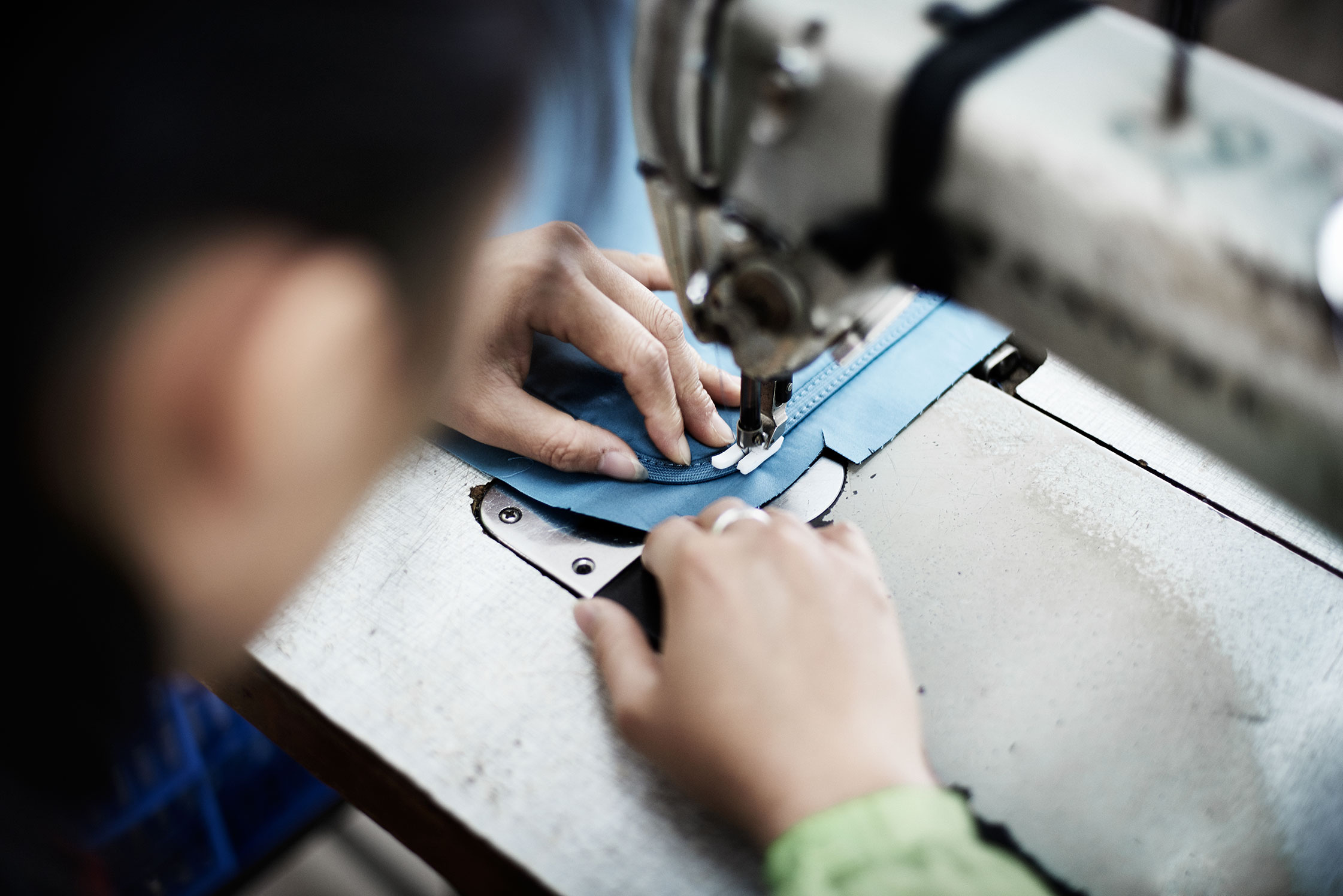
“Even during our design studies, the sustainable use of resources was an ongoing topic.”
Christian Kaegi
QWSTION has continuously improved the quality of the materials over the years. Today, while 85 percent of the cotton used for the main materials is sustainable, and many of the other materials are produced similarly, the company constantly invests to even increase the percentage. Organic cotton, recycled cotton or vegetable-tanned leather are used for simple and multifunctional backpacks, weekenders, tote bags and travel bags. From this typical QWSTION assortment, one piece of clothing stands out: An all-weather coat, created in cooperation with the Zurich-based textile development studio D.N.S (Development Never Stops). Although not a bag, the coat made of CottonShell is a prime example of QWSTION’s desire for innovation and their sensible use of materials.
“CottonShell is a material we have developed, although its production technologies have been known for decades”, says Thomas Deutschenbaur, co-owner of the eponymous company that collaborates with Marcel Geser of the design label D.N.S. “Yet the technologies haven’t been used for a long time as they are too costly. In turn, CottonShell has introduced the newest production components that decrease the cost even working with sustainable cotton.” The densely-woven cotton fabric is windproof and water-resistant and was originally produced in England. In the 1930s, CottonShell was used for fire hoses and water tanks; during the Second World War, coveralls made of it protected British pilots. “Our new CottonShell fabric is a functional one, for which fibers are spun and twisted in a particularly soft way, then woven to the highest possible density. The result is an all-weather material with purely natural properties. It’s breathable and allows a high level of wearing comfort—and it consists entirely of a renewable raw material.”
Compared to other materials, producing a CottonShell coat requires less energy. Made by Polish tailors, the processing is easy and returns to the roots of manufacturing.
“The joint project’s approach was ultimately to develop a coat designed with the same idea relating to our bags: one that is versatile, sustainable and durable.”
Christian Kaegi
The cooperation with D.N.S., like so much at QWSTION, developed organically. Thomas Deutschenbaur and Marcel Geser used to share a studio with the QWSTION designers, so a friendly relationship was established long before the collaboration. “Even though there has always been an exchange of ideas, we wanted to find a suitable basis for a joint project,” says Thomas. “Marcel addressed the development of the CottonShell fabric a little more than two years ago, and it quickly became clear that it fits perfectly with the evolution and philosophy of the QWSTION brand.” Since D.N.S itself is one of the world’s most renowned textile development studios in the apparel sector, the all-weather jacket was chosen instead of the design of a bag. “The joint project’s approach was ultimately to develop a coat designed with the same idea relating to our bags: one that is versatile, sustainable and durable.”
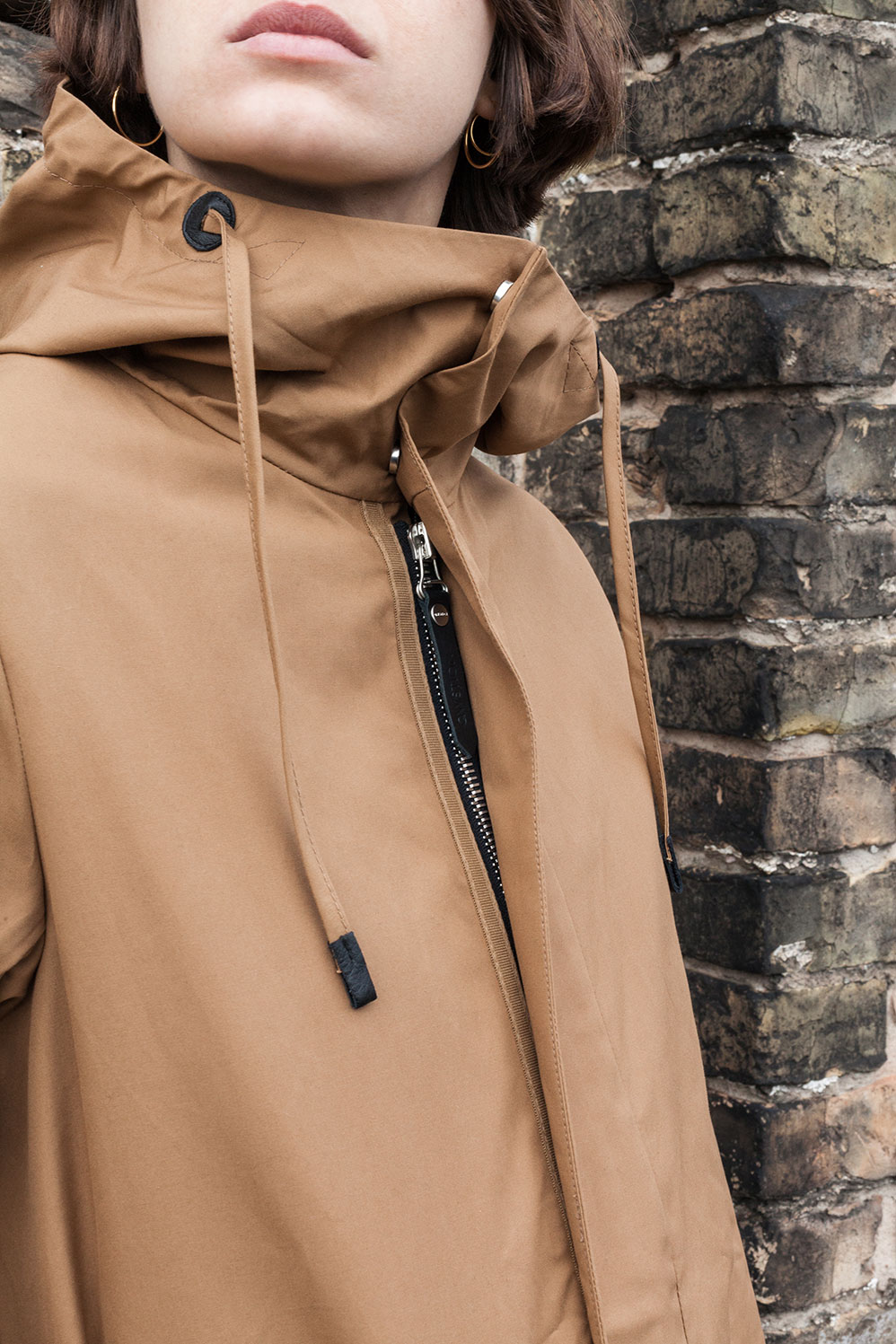
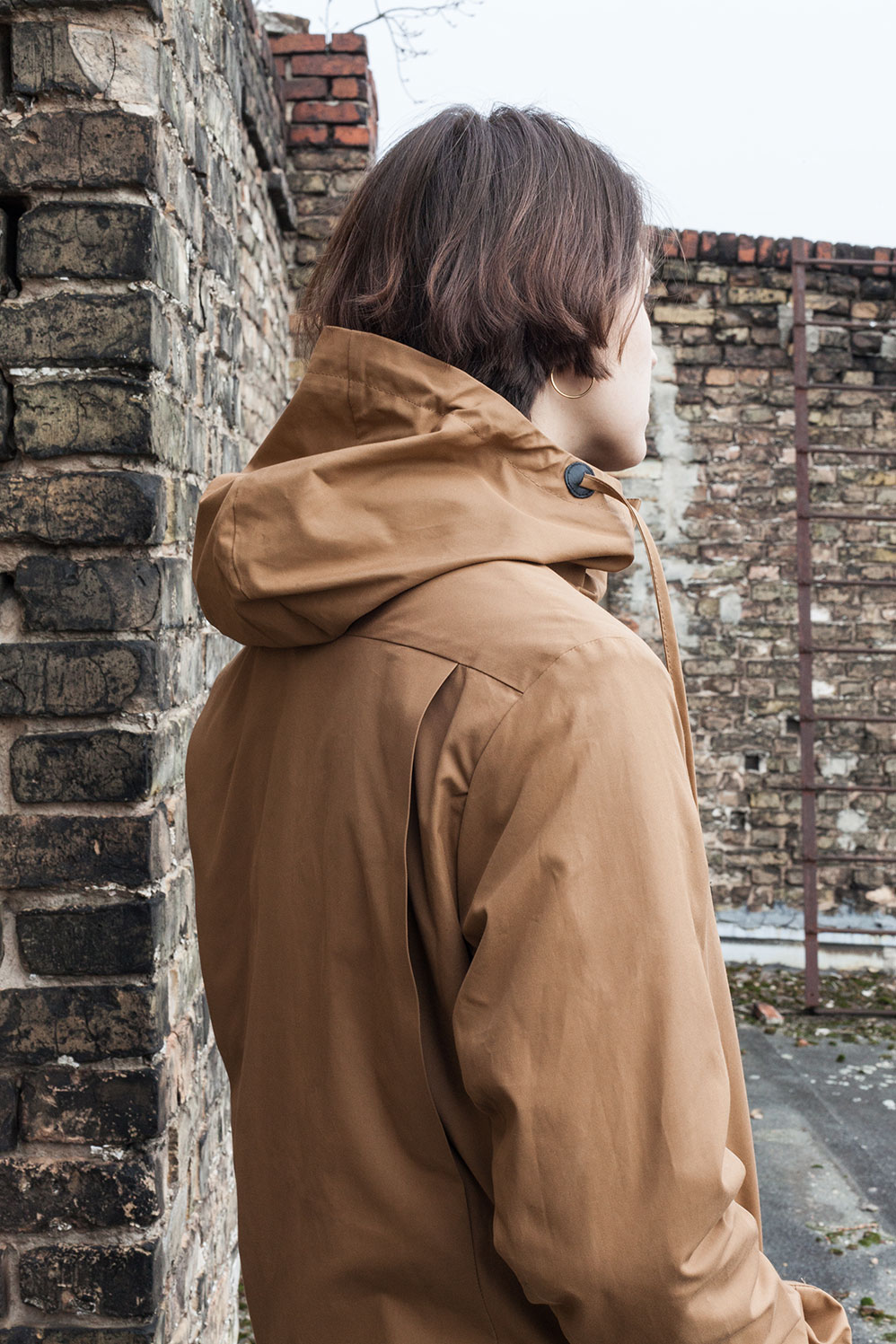
The fascination for the material and the brand’s constant self-examination have also led to a collaboration with an MA course at art and design school ECAL, near Lausanne. “It’s an important part of the educational program that students work with established brands,” says Thilo Alex Brunner, who is a designer himself and also associate professor at ECAL. “QWSTION offers the course something special, as Christian himself has been lecturing with us for a few years now. The collaboration with a lecturer’s brand is rather unusual, but it has enabled us to have a much more personal approach. Since we have chosen CottonShell as our staple, we visited both the QWSTION and D.N.S design studios.” CottonShell was chosen for the project for three main reasons: It’s very functional, natural and made in Switzerland. “However, it would have been too obvious if the briefing for the students had only required bags. Customers should expect the unexpected from us.”
“The core of the task was to experiment with the new material in the context of wearable clothing,” says Christian Kaegi. The ten results were unveiled at the QWSTION concept store in Vienna as part of the Vienna Design Week in the fall of 2017. These include a scarf designed as a travel accessory with integrated pockets, a backpack that can be converted into a rain poncho in no time at all, a three-piece travel bag, a photo bag and a simple umbrella made of 17 individual parts and matching spats. “It’s a fundamental part of these collaborations between students and brands to present products that are out of the ordinary,” says Thilo. “Following QWSTION’s motto, it’s about, questioning common ideas and standards.”
One of the big questions that continuously arises in the work of Christian Kaegi concerns customer needs. “As our products are attractive both visually and functionally, they certainly appeal to a broad audience. However, we still produce a niche product with our progressive approach—something not all our customers are yet aware of,” he says. “We want to do our part to change this. Hence our tasks include raising awareness for our kind of product design by providing background knowledge and demonstrating production processes.” This is a clear insight that QWSTION, for once, does not call into question.
